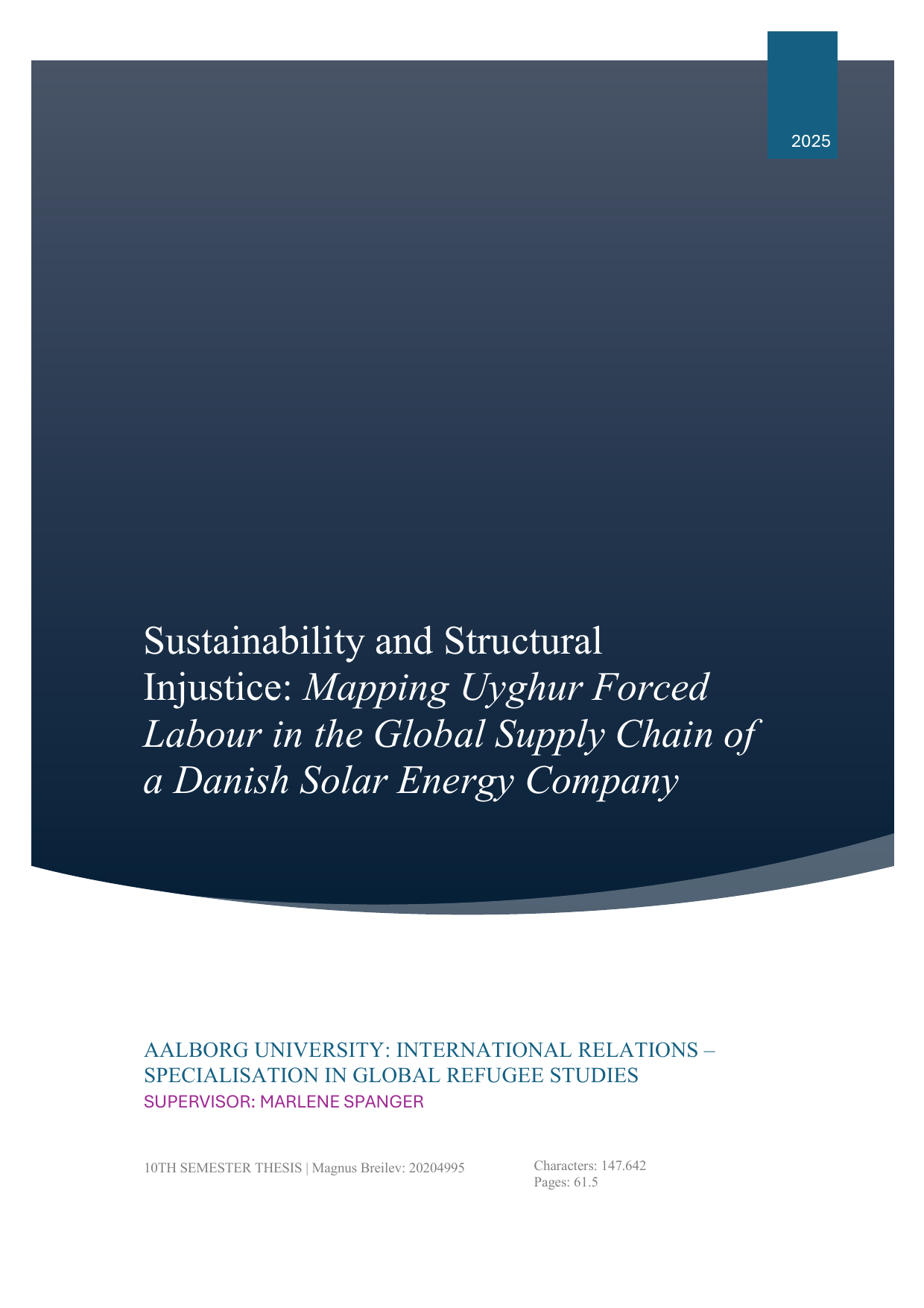
Sustainability and Structural Injustice: Mapping Uyghur Forced Labour in the Global Supply Chain of a Danish Solar Energy Company
Author
Term
4. semester
Education
Publication year
2025
Submitted on
2025-05-27
Abstract
Concurrently with the global green transition, the demand for solar power and solar energy has never been higher. This development is predominantly viewed in a positive light and as a general environmental success. Meanwhile the supply chain behind solar energy hides a complex reality characterised by social injustice such as systematic exploitation of the Uyghur people of the Xinjiang province. With a point of departure at the company European Energy, this thesis seeks to investigates, how Danish actors in the solar industry, is connected to global capitalistic structures that facilitates reproduction and labour exploitation. The thesis operationalises a Marxist theoretical framework, with particular focus on concepts such as surplus value, exploitation, appropriation and accumulation by dispossession. This is operationalised to analyse the global supply chains of solar energy. Methodologically, the analysis is grounded in a qualitative case study and a critical document analysis of publicly available reports such as ESG reports, NGO’s investigations, Media coverage and academic research. The analysis shows that the supply chain of European Energy contains obvious links to sub-suppliers in Xinjiang who are of linked to regions associated with systemic forced labour practices, which puts in to question the company’s responsibility and social sustainability. Despite thorough supplier code of conduct policies, the analysis shows that financial risks and capital accumulation is prioritised over social responsibilities in affected areas. The thesis concludes that exploitation of labour in the green transition is part of the structural logic of capitalism and not particularly a deviation. Thereby, the notion of sustainability as a holistic venture that considers environmental, social and economic factors is challenged.
Documents
